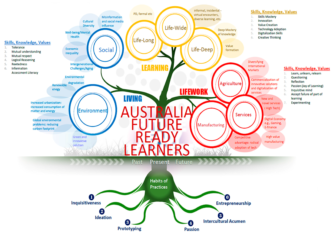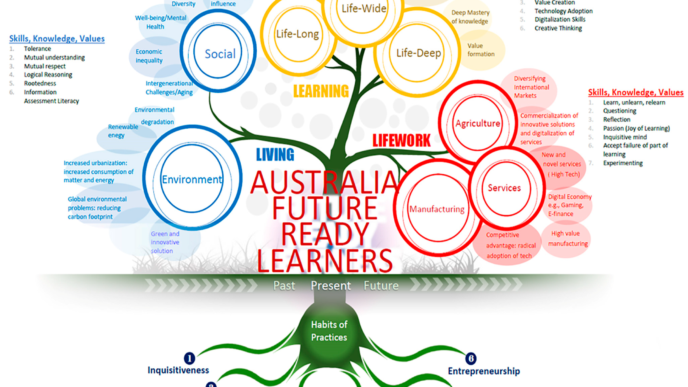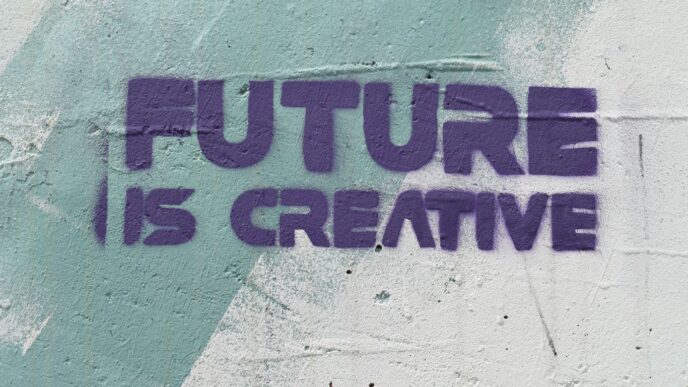Thinking about a summer at Microsoft in 2025? It’s a great goal, and getting an internship there can really set you up for a good career. This guide is here to help you figure out how to make that happen. We’ll cover everything from what kinds of internships they have to how to actually get one. It’s not just about knowing how to code; it’s about showing them you’re ready to learn and contribute. Let’s break down what you need to know for a successful microsoft internship application.
Key Takeaways
- Microsoft offers various internship programs for students, including high schoolers, and you can find them on their student careers portal.
- To apply for a microsoft internship, focus on making your resume strong and highlighting your tech skills and projects.
- Developing skills in areas like web development, Java, and understanding project management methods like Agile will help your application.
- Beyond tech abilities, strong communication and teamwork are important for success during the internship.
- Treating your internship as a learning experience and a step toward your career goals is key to making the most of it.
Understanding Microsoft Internship Opportunities
Exploring High School Programs at Microsoft
Microsoft offers a few ways for high schoolers to get a taste of the tech world. The main one is the Microsoft High School Internship Program, often called the Discovery Program. This is usually for students who are about to graduate high school. It’s a summer gig where you get to work on actual projects, learn some business skills, and have a mentor from Microsoft guiding you. You’ll pick up programming basics and get ready for a career. It’s a good way to see if working at a big tech company is for you.
Navigating the Microsoft Student Careers Portal
When you’re looking for these kinds of opportunities, the Microsoft Student Careers Portal is your go-to spot. It’s where they list all the openings for students, including internships. You can filter by location, role type, and what you’re studying. It’s pretty straightforward to use, but you’ll want to check it regularly because new positions can pop up. The portal is your main gateway to finding and applying for internships. Make sure your profile is up-to-date if you create one there.
Key Benefits of a Microsoft Internship
So, why bother with an internship at Microsoft? For starters, you get real-world experience. You’re not just doing busy work; you’re contributing to actual projects. This means you’ll be using tools and working in environments similar to what you’d find in a full-time tech job. You also get to learn from experienced professionals who can offer advice and feedback. This mentorship is super helpful for figuring out your career path. Plus, it looks really good on a resume when you’re applying for college or future jobs. It shows you’ve been in the trenches and know what it’s like to work in the tech industry.
Preparing Your Application for a Microsoft Internship
Getting your application ready for a Microsoft internship in 2025 is all about showing them what you can do and how you fit in. It’s not just about having a good GPA; they want to see that you’ve put in the work and understand what it takes to succeed in a tech environment. Think of this as your chance to make a strong first impression before you even get to an interview.
Crafting a Standout Resume for Tech Roles
Your resume is often the first thing a recruiter sees, so it needs to be clear, concise, and highlight your relevant experience. For tech roles, this means focusing on your technical skills and any projects you’ve worked on. Don’t just list your responsibilities; show what you achieved. Use action verbs and quantify your accomplishments whenever possible. For example, instead of saying ‘Worked on a web application,’ try ‘Developed a user authentication module for a web application, improving login security by 15%.’ Keep it to one page if you can, especially if you’re earlier in your academic career.
Highlighting Relevant Skills and Projects
Microsoft is looking for candidates who have practical experience. This could be through personal projects, coursework, or previous internships. When you list your projects, briefly describe what the project was, what technologies you used (like Python, C++, JavaScript, etc.), and what your specific role was. If you contributed to an open-source project, that’s a big plus. Also, make sure to list the programming languages and tools you’re comfortable with. Think about what skills are mentioned in the job description and make sure your resume reflects those.
Leveraging AI for Personalized Job Recommendations
While you’re looking for opportunities, don’t forget that technology can help you find the right fit. Microsoft’s own career portal, and other platforms, might use AI to suggest roles based on your profile and the skills you’ve listed. Take advantage of these features. If the system suggests a role that seems interesting but you hadn’t considered, check it out. It could lead you to an opportunity you might have missed otherwise. This is a smart way to discover roles that align with your developing skillset.
Essential Skills for Aspiring Interns
So, you’re aiming for a Microsoft internship in 2025? That’s awesome! Beyond just having a good resume, you’ll want to brush up on some specific skills that tech companies, especially Microsoft, really look for. It’s not just about knowing how to code; it’s about knowing how to code well and how to work with others.
Mastering Web Development Fundamentals
These days, almost everything has a web component. Knowing your way around HTML5, CSS3, and responsive design is super important. You’ll learn how to structure web content with HTML and make it look good and work on any device using CSS. It’s the building block for so many applications, and getting a handle on it early will make a big difference. Think of it as learning the alphabet before you can write a novel.
Gaining Proficiency in Java Programming
Java is still a big deal in the software world. If you’re coming from a background that isn’t object-oriented, learning Java might seem a bit tricky at first. But it’s worth it. Understanding concepts like classes, objects, and inheritance will open up a lot of doors. Many large-scale applications and systems use Java, so being comfortable with it is a solid advantage. It’s a language that powers a lot of what we use every day.
Understanding Agile Methodologies
Software development isn’t usually a waterfall process anymore. Most teams work using Agile principles. This means working in short cycles, collaborating closely, and being ready to adapt as things change. You’ll likely hear terms like
Beyond Technical Skills: Professional Development

So, you’ve got the coding chops down, maybe you’re pretty good with Java or know your way around HTML. That’s awesome, really. But here’s the thing about working in a place like Microsoft, or honestly, any professional setting: it’s not just about what you can build. It’s also about how you work with others, how you communicate, and how you manage your time. These ‘soft skills,’ as some call them, are actually pretty important. They can make the difference between a good intern and a great one.
Developing Effective Business Writing
Think about it. You’ll be writing emails, maybe some documentation, or even just messages in a team chat. If it’s unclear or full of errors, people might misunderstand what you mean, or worse, just ignore it. Learning to write clearly and professionally isn’t just for English majors. It helps everyone on the team get on the same page faster.
- Emails: Keep them short, to the point, and with a clear subject line.
- Documentation: Explain things so someone new to the project can understand them.
- Team Chats: Be polite and use proper grammar, even if it’s informal.
Enhancing Project Time Management
Projects have deadlines, and those deadlines don’t move just because you’re an intern. Learning to break down tasks, estimate how long they’ll take, and keep track of your progress is a big deal. It means you won’t be scrambling at the last minute, and your team can rely on you.
Here’s a simple way to think about managing your time:
- Break it Down: Take a big task and split it into smaller, manageable steps.
- Estimate: Guess how long each small step will take. Be realistic!
- Track: Keep a list of what you need to do and check things off as you finish them.
Strengthening Team Collaboration Skills
Nobody codes in a vacuum, especially not at a big company. You’ll be working with other interns, full-time engineers, and maybe even people from different departments. Being able to share ideas, listen to others, and work together towards a common goal is key. It’s not about being the loudest person in the room; it’s about contributing constructively and being a good teammate.
- Listen Actively: Really pay attention when others are speaking, don’t just wait for your turn to talk.
- Offer Help: If you see someone struggling and you have the capacity, offer a hand.
- Ask for Help: Don’t be afraid to admit when you’re stuck. It’s better than wasting hours.
These skills might not be as flashy as writing complex algorithms, but they’re what help you fit into a professional environment and actually get things done effectively.
The Internship Experience at Microsoft
What to Expect During Your Internship
So, you’ve landed a Microsoft internship for 2025. Awesome! Now, what’s it actually like? Think of it as a crash course in the real world of tech. You’re not just fetching coffee; you’ll be working on actual projects, probably with a team. Expect to dive into coding, maybe using languages you’ve just learned, or perhaps picking up new ones. Microsoft often uses Agile development, which means working in short cycles, collaborating a lot, and being ready to adjust as things change. It’s a fast-paced environment, so be prepared to learn on the fly. You’ll likely get to use industry-standard tools, like Git for code management or Jira for tracking tasks. Don’t be shy about asking questions – everyone expects interns to be learning.
Making Meaningful Contributions
It’s easy to feel like you’re just a small cog in a giant machine, but Microsoft really wants interns to contribute. Your tasks, even if they seem small, are part of a bigger picture. Maybe you’ll be fixing bugs, developing a small feature, or helping with testing. The key is to approach each task with focus. Your ability to learn quickly and adapt will be your superpower here. You’ll get feedback from your manager and teammates, which is super important for growth. Use this feedback to improve your work. Remember, they hired you because they believe you can add something, so give it your best shot.
Viewing Internships as Career Stepping Stones
This internship isn’t just a summer gig; it’s a launchpad. Think about what you want to do after graduation. This experience gives you a real look at what a job at a company like Microsoft is like. You’ll build your network, which is huge. You might even get a return offer for a full-time position. Keep track of the skills you’re using and developing. This will be gold for your resume later on. Plus, you’ll have stories and projects to talk about in future interviews. It’s all about gaining practical experience and figuring out your next move in the tech world.
Securing Your Microsoft Internship in 2025
Alright, so you’ve got your sights set on a Microsoft internship for 2025. That’s a big goal, and getting there takes more than just wishing. It’s about having a plan and sticking to it. Think of it like building something cool – you need the right steps to make it happen.
A Structured Approach to Internship Applications
Trying to apply for internships can feel a bit like wandering through a maze. To avoid that, it’s best to break it down. A good way to start is by creating a timeline. What needs to be done by when? For example, you might want to:
- Week 1-2: Research specific internship roles that fit your skills and interests. Don’t just look at the big, flashy titles; dig into the descriptions.
- Week 3-4: Polish your resume and cover letter. Make sure they clearly show what you can do and why you’re a good fit for Microsoft.
- Week 5-6: Start submitting applications. Don’t wait until the last minute; some programs review applications as they come in.
- Ongoing: Keep an eye out for new postings and tailor your applications as needed.
The key is to be organized and proactive, not just reactive.
The Importance of Visibility and Networking
It’s not always just about what you know, but also who knows you. Getting your name out there can make a big difference. This doesn’t mean being loud or pushy; it’s about making genuine connections.
- Attend Virtual Events: Microsoft often hosts online sessions for students. These are great places to learn more and ask questions directly.
- Connect on Professional Platforms: Use sites like LinkedIn to follow Microsoft and people who work there. Engage with their posts thoughtfully.
- Informational Interviews: If possible, reach out to current interns or employees for a brief chat about their experience. Most people are happy to share their stories.
Building these connections can give you insights you won’t find anywhere else and might even lead to a referral.
Final Push: Interview Preparation Strategies
So, you’ve landed an interview – congrats! Now comes the part where you show them why you’re the right person. Preparation is everything here.
- Practice Technical Questions: Be ready for coding challenges and questions about computer science concepts. Work through problems on platforms like LeetCode or HackerRank.
- Prepare for Behavioral Questions: Think about times you’ve faced challenges, worked in a team, or learned something new. Use the STAR method (Situation, Task, Action, Result) to structure your answers.
- Research Microsoft’s Values: Understand what Microsoft stands for and how your own values align with theirs. This shows you’ve done your homework.
- Ask Thoughtful Questions: Have a few questions ready to ask the interviewer. This shows your engagement and interest.
Remember, interviews are a two-way street. It’s your chance to see if Microsoft is the right fit for you, too.
Wrapping Up Your Internship Journey
So, you’ve made it through the guide on landing a Microsoft internship for 2025. It’s a big goal, for sure, but totally doable. Remember, it’s not just about having the perfect resume or knowing all the answers. It’s about showing you’re ready to learn, work hard, and fit in with the team. Keep practicing those skills, get your name out there, and don’t be afraid to apply. Microsoft is looking for people like you who are eager to contribute and grow. Good luck with your applications – we’re rooting for you!
Frequently Asked Questions
What kind of internships does Microsoft offer for high schoolers?
Microsoft has a special program called the Discovery Program for high school students who are about to graduate. It’s a summer internship where you get to work on real projects, learn important job skills, and have a mentor from Microsoft to guide you. You’ll learn how to code and get ready for a career.
How can I find and apply for a Microsoft internship?
The best place to start is the Microsoft Student Careers Portal. You can create a profile to get job suggestions based on what you’re good at. You can also upload your resume to see what jobs fit you best. Setting up job alerts means you won’t miss out on new openings.
What skills are most important for a Microsoft internship?
It’s super helpful to know the basics of building websites, like using HTML and CSS. Knowing how to code in Java is also a big plus. Understanding how teams work together using methods like Agile can also make you stand out.
Besides technical skills, what else should I focus on?
Being able to write clearly, like in emails or reports, is really important. Learning how to manage your time well so you can finish projects on schedule is also key. And being a good team player, working well with others, will help you a lot.
What’s it like to be a Microsoft intern?
During your internship, you’ll likely work on real projects that matter to the company. It’s a chance to learn a lot, show what you can do, and get advice from experienced people. Think of it as a big step towards your future career.
How can I make my application stronger?
Make sure your resume clearly shows your skills and any projects you’ve worked on. You can also use tools like AI to help find jobs that match you perfectly. Networking and getting ready for interviews are the final steps to help you land the internship.












